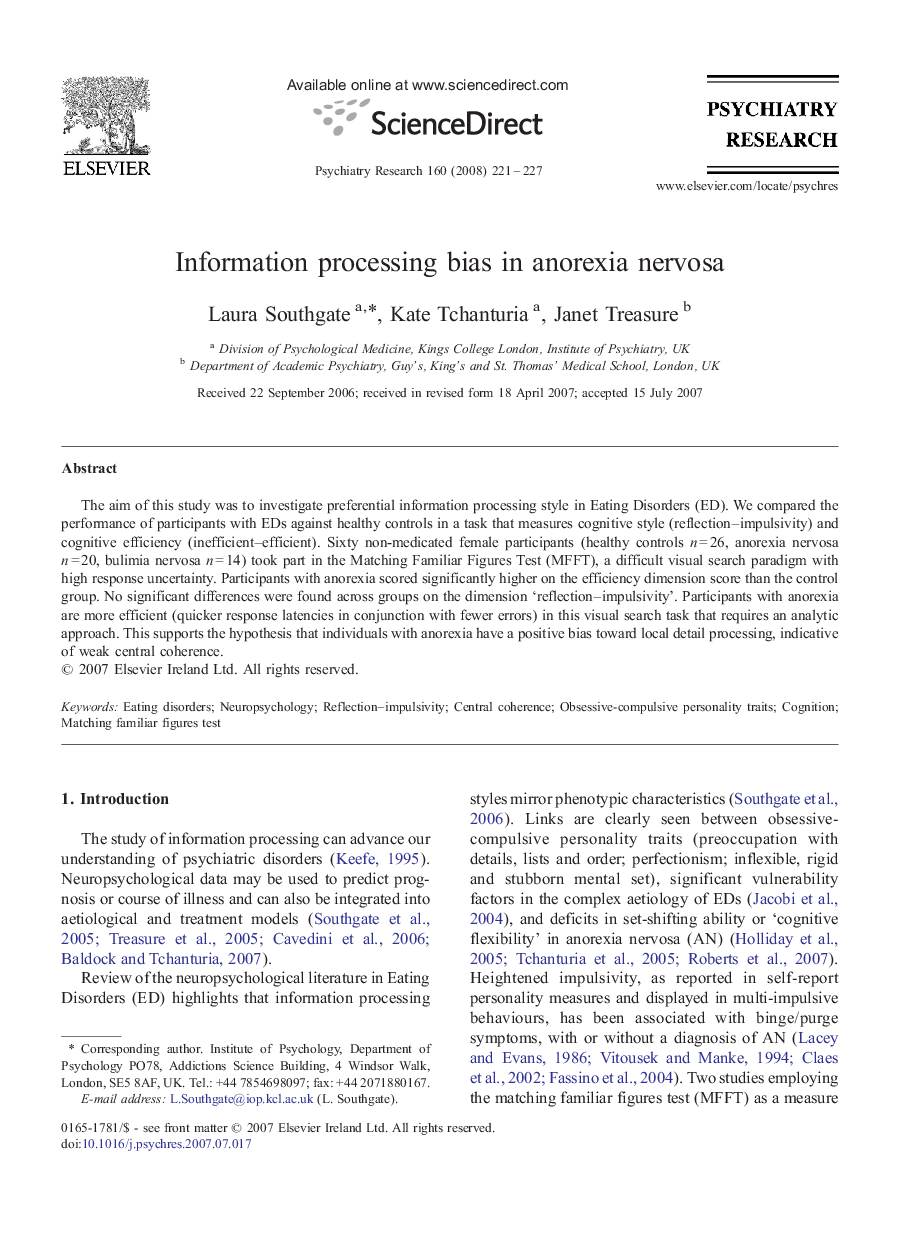| Article ID | Journal | Published Year | Pages | File Type |
|---|---|---|---|---|
| 332493 | Psychiatry Research | 2008 | 7 Pages |
The aim of this study was to investigate preferential information processing style in Eating Disorders (ED). We compared the performance of participants with EDs against healthy controls in a task that measures cognitive style (reflection–impulsivity) and cognitive efficiency (inefficient–efficient). Sixty non-medicated female participants (healthy controls n = 26, anorexia nervosa n = 20, bulimia nervosa n = 14) took part in the Matching Familiar Figures Test (MFFT), a difficult visual search paradigm with high response uncertainty. Participants with anorexia scored significantly higher on the efficiency dimension score than the control group. No significant differences were found across groups on the dimension ‘reflection–impulsivity’. Participants with anorexia are more efficient (quicker response latencies in conjunction with fewer errors) in this visual search task that requires an analytic approach. This supports the hypothesis that individuals with anorexia have a positive bias toward local detail processing, indicative of weak central coherence.
